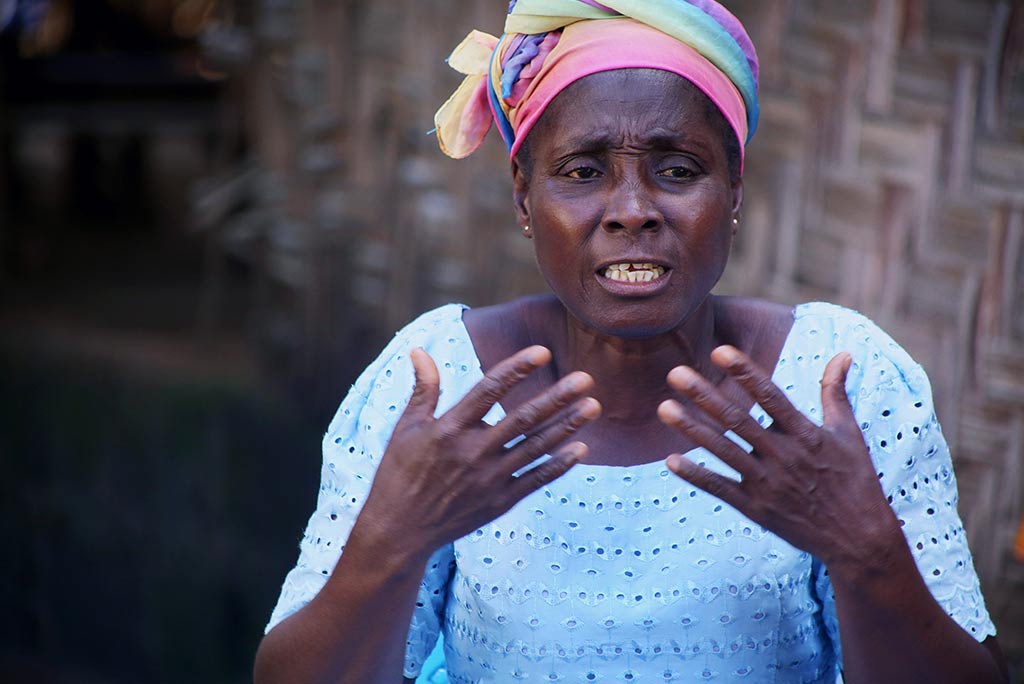“We aren’t animals”
Rodah Richard knows what it feels like not to know your value or your rights. As a community leader in Liberia, she wants to end discrimination of women and girls.

Rodah Richard was merely 16 years old when she was married to a man more than 40 years older than her. She gave birth to 10 children. When her husband died, his family threw her, and the children, out of their home. A woman wasn’t seen as having any claim over a property.
“My husband’s family told me that I would get another man, so I couldn’t stay on their property. I accepted it because, at that time, I knew nothing about women’s rights,” says Rodah.
Rodah struggled to support her family. It was hard to earn enough money to send the children to school as well as provide food and shelter for them.
“As a single mother, I worked on farms, washed and cooked for other people to be able to send my children to school. I didn’t have anyone to turn to. When I called my former husband’s family for help, they simply said I should find new man, that I was still young,” says Rodah.
Trainings on women’s rights
In 2017, Rodah met Kvinna till Kvinna’s partner organisation LIWEN. They invited Rodah to a meeting in Kpanah Town and asked if she wanted to be part of a women’s group to learn about women’s rights.
“I was scared at first. I used to tell myself that these ‘human rights people’ can confuse you. And I didn’t know how to speak in front people. So, I decided not to go back. But LIWEN kept encouraging me and, eventually, I joined,” says Rodah.
Rodah explains that the trainings were a turning point for her.
“I learned that we are important in society and mustn’t overlook ourselves. We must believe in ourselves to get power.”
She has since been elected as community leader in Kpanah Town—a position which had never been held by a woman before. Her ambition is to advance to governor for Grand Bassa county and she plans to advocate for girls’ rights to attend school and not to be forced into early marriages, like herself.
Violence against women
Women in Rodah’s community have for a long time been treated lesser than men. A particularly horrifying example that Rodah shares is how her sister was subjected to “sassywood”—a trial by ordeal—because of alleged infidelity. Stripped naked in the presence of her family, Rodah’s sister was burned and then tortured to death when her accusers tried to force a confession out of her. This despite the practice being outlawed in the country.
“I want men to know that we aren’t animals. In parts of Liberia, women are still subjected to ‘sassywood’—this is violence against women, and it must stop,” says Rodah.
Rodah tirelessly works to bring more women and girls to the group, so that they too can learn their value as human beings. And she plans to buy a piece of land herself, one day, when she has the money. Together, the women in the group have started a small savings club to empower each other to reach their goals.
Kvinna till Kvinna has worked for women’s rights in Liberia since 2007 and we have an office in Monrovia. We support and work with several local partner organisations, including LIWEN, to support economic gender equality and end gender-based violence. Read more about our work in Liberia.